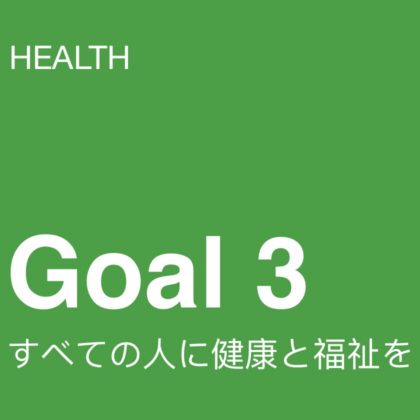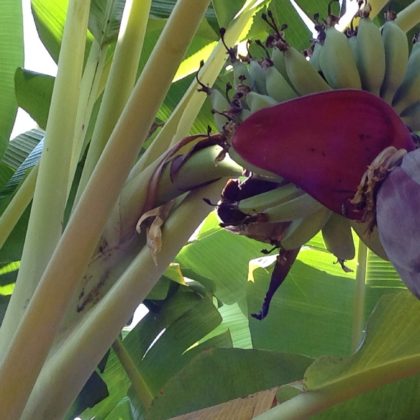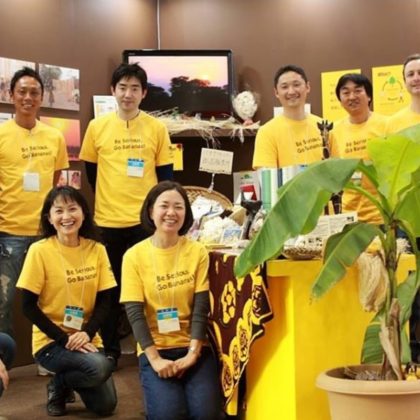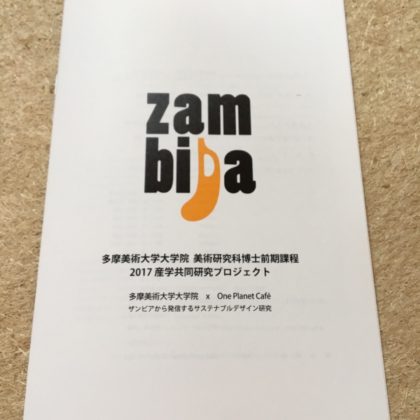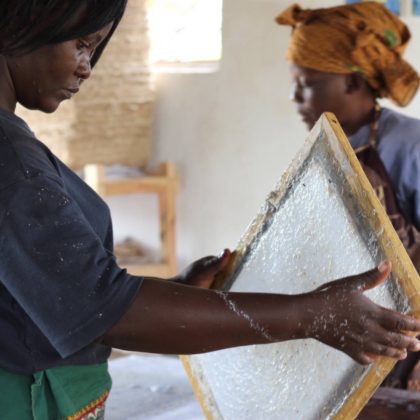WHO
Banana paper is a fairtrade labeled paper created in a unique collaboration with African farmers, people from extreme poverty villages, small-scale Japan and UK paper factories, printing companies, paper product manufacturers and sustainability experts with an environmental activist background. It started in a village in Zambia, a country in southern Africa where wild zebras, giraffes, and elephants walk freely.
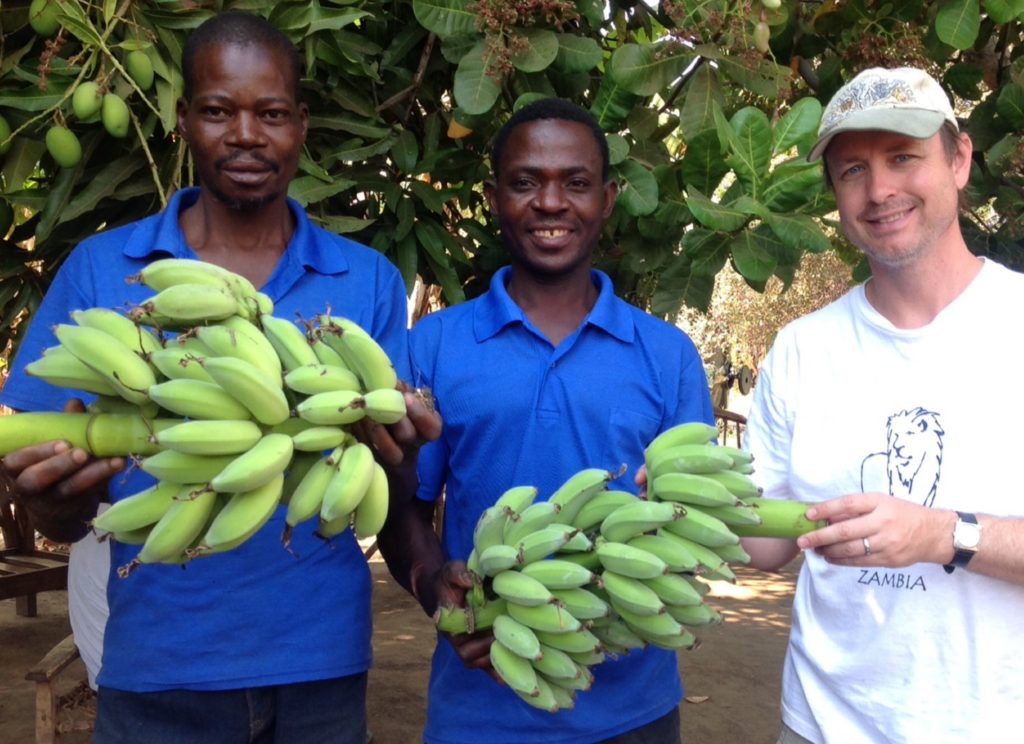
Two of our banana farmers – Nickson and Jonathan – with the co-founder Peo Ekberg.
■ Criteria
Overall criteria for our One Planet Paper® includes over 200 points towards sustainability (according to World Fair Trade Organization). All 17 Global Goals also guide our banana paper. We currently work with more than 50 banana farmers in Zambia, where we have introduced following guidelines / rules:
– banana fields is not grown to make paper (food – the fruit – is priority one)
– banana fields must be managed organically (no chemical use in the banana field)
– avoid cutting conventional trees for the purpose of growing bananas
– no poaching of wildlife
– no child labour (based on the Fair Trade criteria: (a) child below 15 years of age (b) child allowed to help family farms if the child attend school (c) and the work load is not exceeding the physical ability of the child)
■ One year cycle
Bananas are produced in more than 125 countries around the world. The banana “tree” (stem) mature in just 1 years! And only one nunch of banana fruit grows per tree. When harvesting bananas, the “mother stem” is always cut, to allow new “banana shoots” to grow. Within one year a new banana fruit will appear!
The cut stems are usually teated as waste. Each stem contain fibers that can be used to make paper. We buy those discarded stems and use them as raw materials for paper.
Banana farmers can be among the poorest in rural Africa, so selling both fruit + “waste” increases their income and supports their livelihoods.
We employ local people who all originates from villages in extreme poverty. We call them our Banana Team! The Team remove, dry and pack fibers. Sometimes even making hand-made banana paper in Zambia.
Most of our Team Members have never held a long-term job. As a result, women risked cutting trees illegally (to use and sell as firewood), and men are always in the risk zone of becoming poachers, killing elephants and othe wildlife to support their families.
So, in 2011, we started the banana paper project with the farmers and women from some of the villages. In accordance with fair trade standards, we aim to ensure thorough traceability in the supply chain. Through banana paper, more than 1000 people in rural Zambia already benefit directly or indirectly. In 2016 Japan we became one of the worlds first Fair Trade Verified paper producers (WFTO – World Fair Trade Organization).
■ Japanese traditional washi-paper
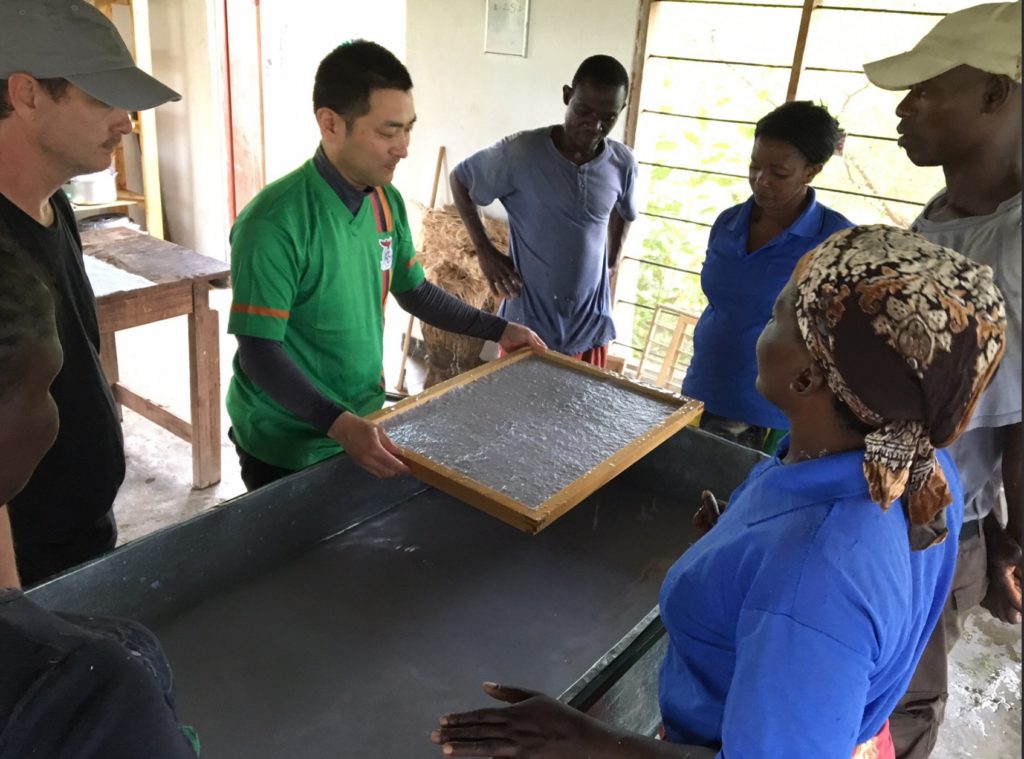
Japanese washi-paper training in Zambia.
One Planet Paper® is produced at a small-scale paper factory in the famous Echizen Town, in Japan. Traditional Washi paper making has a history of that goes back 1,500 years. The paper is a mix of banana fiber & recycled paper, or banana fiber & environmentally certified FSC paper. This FSC x Banana Fiber paper is the worlds first of its kind!
In 2017, we also started making hand-made paper at our Green Factory in Zambia by using washi skills. We invited experts from Echizen Washi to Zambia to be trained in hand-made paper making.
■ One Planet Paper® Association
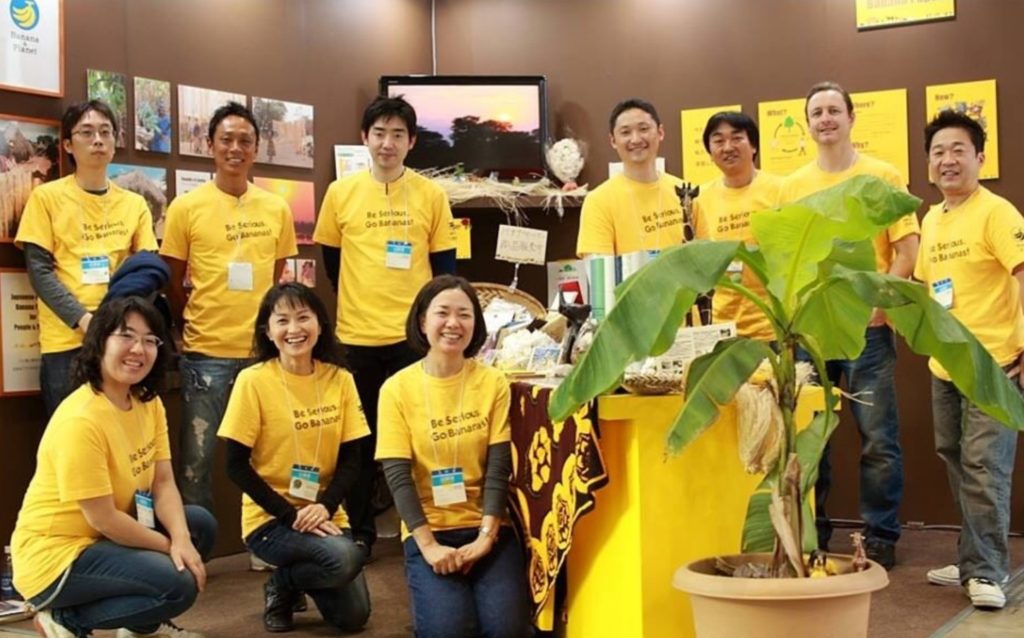
Association members at one of our Banana Paper Exhibitions in Tokyo – Japan. Printing companies, paper product manufacturers and environmental experts.
We at One Planet Café is a sustainability impact company – not paper experts! So we are working together with Japan printing and paper product companies with the aim at creating one of the worlds most sustainable papers. Together we have established the One Planet Paper® Association to develop various banana paper products, including plastic free sustainable packaging. The council also shares information on fair trade and sustainability in general. Associations website here
■ Environmental Experts
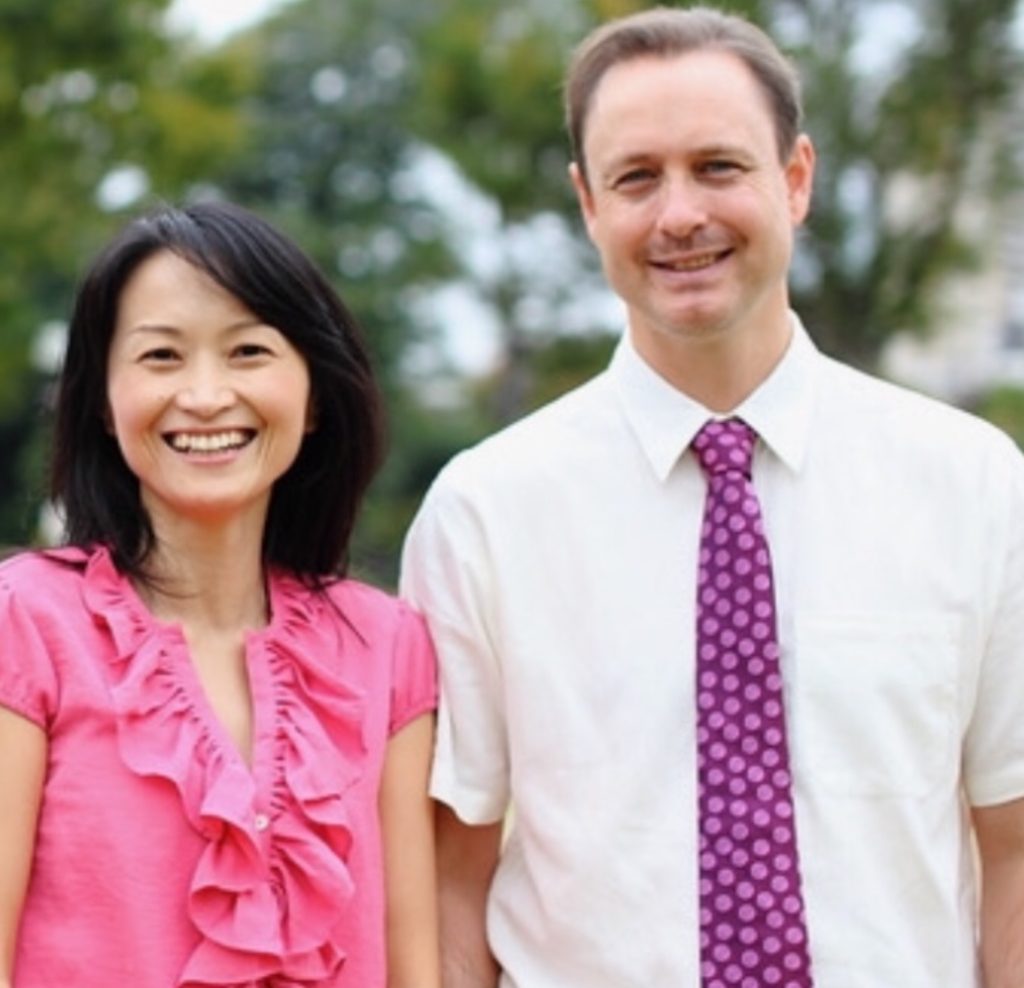
We at One Planet Café Ltd., have many years of experience in environmental solutuions. In 2016, we became Japan’s first Fair Trade Verified paper producer (WFTO – World Fair Trade Organization). About Fairtrade Certification.
Peo Ekberg has been an environmental NGO leader, environmental journalist and sustainability consultant for over 25 years. Satoko Ekberg has been a CSR strategist and sustainability consultant for over 20 years. She has worked with sustainability related human resource development and business development towards companies and the Japanese Government. She has also developed environmental e-learning programs to businesses and universities.
One Planet Café Ltd. was established in 2012. We base our business model on following global standards:
1. The Eco Cycle (circular economy standards through the Technical Cycle and Bio Cycle)
2. Fair Trade standards (based on WFTO – the World Fair Trade Organization)
3. The Global Goals (SDGs – based in UNs 17 Goals and 169 Targets for Sustainable Development)


